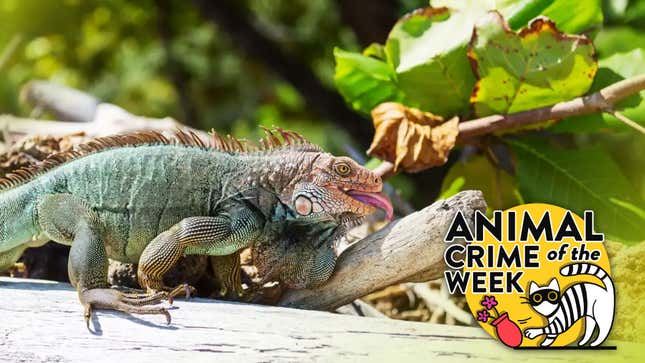
Welcome to another installment of Gizmodo’s Animal Crime of the Week. Last week, we admired the trash-stealing parrots of Australia. This week features a bitey, cake-stealing iguana that added injury to insult by giving its victim a nasty, rare infection.
This weird tale comes from a case report published by Stanford University doctors last April. A 3-year-old girl and her family were vacationing in Costa Rica. The girl was in the middle of eating cake on a beach when the unthinkable happened: A wild iguana came racing over, bit her on the hand, and took off with the cake.
The girl’s family sought medical treatment locally, which involved disinfecting her hand and giving her a course of antibiotics meant to protect against Salmonella bacteria—microbes commonly carried by reptiles. Unfortunately, the iguana had actually given her something else. The family returned home, but a bump on the girl’s bitten hand refused to go away and only grew bigger and more painful over time. Five months later, the girl was seen by the Stanford doctors and they removed a nearly 1-inch mass of pus from her hand. Eventually, they confirmed that she had been infected by the bacteria Mycobacterium marinum.
M. marinum is a relative of the bacteria responsible for human diseases like tuberculosis and leprosy. It’s known to regularly make fish sick and to sometimes cause skin infections in people. But previous human cases have all been linked to swimming or exposure to infected fish. The girl, as it turned out, is the first person to have ever caught it via iguana bite, at least as far as scientists know.
This story of grievous cake theft and bodily harm has a happy ending, at least. Once the girl was prescribed combination antibiotic therapy, her symptoms and infection cleared up. And the case provides an important reminder that there are many potentially dangerous germs lurking in unexpected places.
But man—worst vacation ever.

